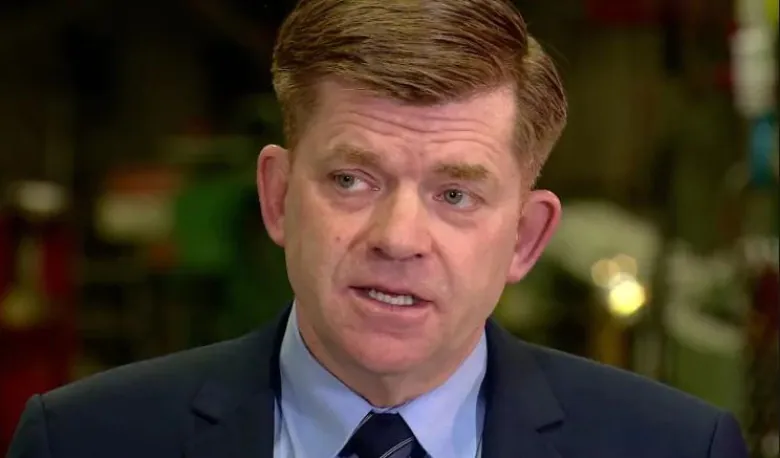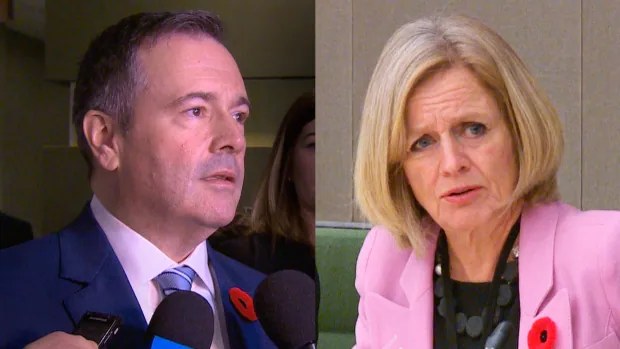Provincial cabinet ministers say Alberta has its swagger back, pointing to growing employment rates and corporate investment in the province.
But while the United Conservative Party (UCP) government tries to direct attention to the economy — with Premier Jason Kenney mentioning new private sector projects or investments at every opportunity — political scientists say much of Albertans’ interest in provincial politics in 2022 will be focused on leadership and health-care management.
“We’re seeing some of the best economic news of my generation in this province,” government House leader Jason Nixon told reporters last month.
“And I strongly believe this party will be judged in 2023 at the polls based on what happens with the economy and the management of fiscal affairs inside this province.”
Not so fast, say political pundits.
The issues they’re watching in 2022 are impacts of the ongoing COVID-19 pandemic and the government’s often divisive responses. Alberta’s health-care system is battered, with high demand and burned-out workers leading to intermittent rural hospital closures and delayed ambulances.
Political observers are also eyeing the looming shadow of the elephant in the room — challenges to Kenney’s leadership from within his own party, and the UCP’s dismal public polling numbers.
Nixon last month dismissed discontent with Kenney’s leadership as “primarily the focus of Twitter and those talking heads within our world.”
Political scientists say Kenney and his inner circle ignore it at their peril.
They say Kenney and his supporters must walk the tightrope of trying to win back disaffected party members while positioning themselves as palatable to voters in the next provincial election, scheduled for May 2023.
‘Between a rock and a hard place’
“[Kenney is] between a rock and a hard place,” said Brendan Boyd, a professor of anthropology, economics and political science at Edmonton’s MacEwan University.
“He has to be able to keep his party together and win the leadership review, but also be able to pivot from that and win the general election.”
That leadership review is scheduled to take place in Red Deer on April 9 — a later date than some within the party had pushed for.
Lori Williams, an associate professor of policy studies at Calgary’s Mount Royal University, said the government’s apparent abandonment of its “grassroots guarantee” to take policy direction from party members — instead imposing top-down decisions — has disenfranchised many members.
Conflict over pandemic restrictions
Supporters who value personal freedoms have also been incensed by public health restrictions to slow the spread of the virus causing COVID-19. Their beliefs are deeply held, Williams said, and it will not be easy to win back their votes or donations.
Another elephant in the room is the ongoing RCMP investigation into alleged voting and financial irregularities in the 2017 UCP leadership contest. Constituency associations that recently pushed for an early review of Kenney’s leadership wanted an independent auditor to oversee the process. The party refused.
A potential high-profile leadership challenger has also re-entered the chat. Former Wildrose Party leader Brian Jean, who lost the 2017 leadership challenge to Kenney, is back in politics. He won the UCP’s nomination contest in the Fort McMurray-Lac La Biche riding, where a byelection is set to be called by mid-February.
Jean has been blunt — he’s here to take Kenney’s job.

While Kenney trails Rachel Notley’s NDP in public opinion polls and fundraising efforts, public policy professor Boyd said there would be a “good contest” in a Jean-Notley face off in 2023.
Both have strong governance and policy visions for the province, he said. “I’d like to see those two visions be proposed and have Albertans choose between them.”
Kenney declined a request for a year-end interview with CBC News. He did tell Radio-Canada he’s confident any leadership review process will be above board.
“I know that some people who weren’t successful have had sour grapes,” Kenney said of the 2017 UCP leadership contest. “But I won, I think, 35,000 votes directly from members there. I won that mandate about two-to-one over the next competitor.
“There was no question about the strength of that democratic mandate.”
The court of public opinion
After riding high following the 2019 provincial election, polls suggest public support for Kenney and his party have gradually eroded. The decline accelerated with the public’s dissatisfaction at how the government has managed the COVID-19 pandemic.
Greg Lyle, founder of the Innovative Research Group, breaks down provincial polling of where Albertans stand on Premier Jason Kenney and how the UCP have handled COVID-19. 4:52
Although Kenney’s cunning political ground game positions him well to survive a leadership challenge, Williams said the government will have to pivot substantially to charm Alberta voters, “and I haven’t seen any evidence of that so far.”
She said the party’s politicians’ and staffers’ tendency to name-call and attack anyone who disagrees with them is off-putting to electors.
In particular, criticizing nurses, doctors, teachers, and other public sector workers who put their safety at risk on the front lines during the pandemic is “tone deaf” and out of sync with public perception, she said.
A system limping along
Opposition leader Rachel Notley said she thinks Alberta’s battered health-care system will dominate public discourse in 2022. She points to problems like delayed ambulance response times and staff shortages causing periodic closures of rural emergency rooms.
She said her election elevator pitch to voters will start with a promise to listen to health-care workers and bolster the system.
Her challenge for the coming year is to pitch the NDP’s competing vision to Albertans — one Notley says balances economic growth with more aggressive economic diversification beyond oil and gas.
A future NDP government would, once again, revamp the new draft school curriculum that has served as a political football for the last five years. It would “work toward” restoring funding for post-secondary institutions whose public funding has been slashed by the UCP, Notley said.
“I think that the most important part to our economic and social recovery is not what’s underneath the ground, it’s what’s walking on top of it,” she said. “And it comes down to our ability to continue our past of bringing people to this province.
“And right now we’re doing the exact opposite.”
Still ground to make up in economic recovery
The government’s post-secondary approach puts emphasis on expanding certified trades and transitioning schools to generate more of their own operating revenue.
Although the government boasts of record economic growth forecast for the coming year, economists say the province has enormous ground to make up from the wallop in 2020. Albertans won’t see those rosy projections as credible unless they feel it in their own lives, Williams said.
“I think this government needs to be very cautious about making promises or predicting success prematurely,” Williams said.
What else to watch for
As the government moves to approve and implement its platform promises from the last election, here are some other changes to watch for in 2022:
- A contentious new math, English language arts and phys ed and wellness curriculum is coming to all K-6 classrooms in the province in the fall.
- The government will introduce a provincial budget in February. Finance Minister Travis Toews has said he will present a new plan to balance the province’s books.
- A committee struck to consult with Albertans about a controversial move to lift environmental protections preventing coal mining in the Rockies has submitted two reports to Energy Minister Sonya Savage. Savage will review the findings and recommendations before releasing them to the public.
- New labour laws to take effect by August will require unions to ask members’ permission to spend their dues on political activities. Several labour groups have pledged to thwart or challenge the law.
- The government, which has pledged to reduce the cost of public services, will continue negotiations with public sector workers, including teachers, nurses, and doctors.
- The government could enact the recall legislation passed by the legislature in 2021. It would allow voters to petition to recall MLAs, municipal councillors and school trustees.
- The government has promised to consult with Albertans about whether to create a provincial police force.



